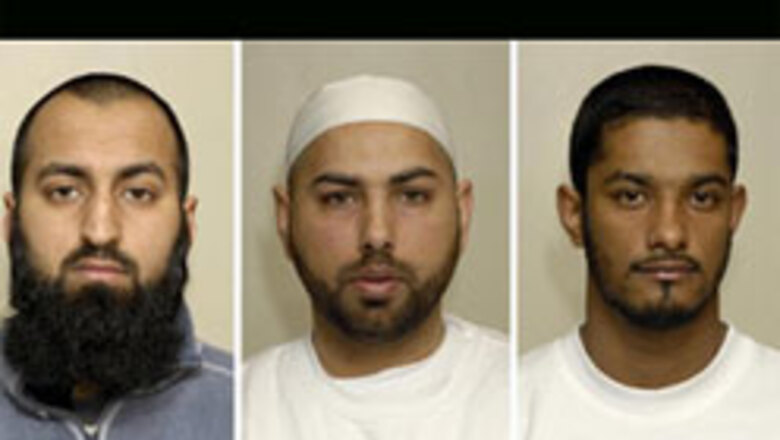
views
London: A British jury said Friday it had failed to reach verdicts in the case of three men accused of helping to plan the London subway and bus bombings in 2005 -- the worst attack on Britain's capital since World War II.
Prosecutors said they would consider whether to seek a retrial and that they would make a decision within a week. Judge Peter Gross ordered the men held in custody pending a decision on whether to hold a second trial in the case.
''I will work from the assumption that there might be a retrial and I will assume that it is likely to be in the new year,'' Gross told the court.
The men, who acknowledged at their trial that they knew the four London suicide bombers, have been the only people charged over the attacks on the British capital's transit network.
The July 7, 2005 bombings killed 52 commuters on three subway trains and a bus.
Waheed Ali, 25, Sadeer Saleem, 28, and Mohammed Shakil, 32, all have denied a charge of conspiring with the bombers to cause explosions.
Following 15 days of deliberations, a jury at a London court said it could not agree on verdicts and was discharged.
In evidence, prosecutors alleged that the three men had taken part in a test run for the 2005 attacks in December 2004, claiming they had joined some of the eventual bombers to scout out targets including subway stations and a host of tourist sites.
Prosecutor Neil Flewitt claimed that the men had cased out possible targets in London, including the Natural History Museum, the iconic London Eye Ferris Wheel and the London Aquarium.
He said some of the locations bore ''a striking similarity'' to where London bombers Mohammed Siddique Khan, Shehzad Tanweer, Jermaine Lindsay and Hasib Hussain carried out their attacks on July 7, 2005.
Ali acknowledged in evidence that he had traveled to Pakistan with Khan -- the ringleader of the 2005 plot -- in 2001 to attend a weapons training camp and again in 2004, when they were joined by Tanweer.
He said the men planned to cross the border into Afghanistan to fight coalition troops, but claimed he became sick with diarrhea in Pakistan and could not make the trip. Ali said Khan made several visits there.
Three years after the attacks, the trial of the alleged accomplices offered an insight into the lives of the bombers, detailing their determination of the ringleader.
In a home video shown to the trial, Khan cradled his infant daughter in his arms as he discussed planning to fight in the name of Islam. ''Sweetheart, not long to go now. And I'm going to really, really miss you a lot,'' Khan is seen saying on the videotape, as he plants kisses on his daughter's forehead.
Flewitt said that in the footage, recorded in 2004, Khan was discussing fighting British and U.S. troops in Afghanistan. He later abandoned that plan, returning to Britain to lead the 2005 attacks on London.


















Comments
0 comment